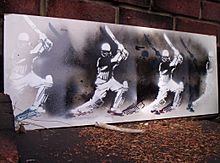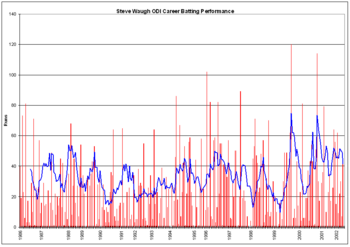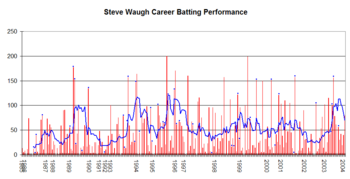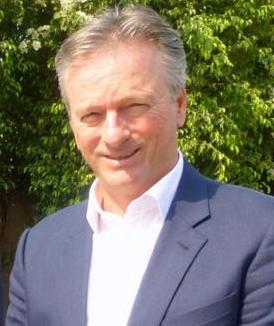Steve Waugh facts for kids
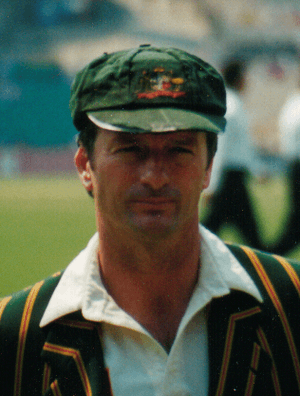
Waugh in 2002
|
||||||||||||||||||||||||||||||||||||||||||||||||||||||||||||||||||
| Personal information | ||||||||||||||||||||||||||||||||||||||||||||||||||||||||||||||||||
|---|---|---|---|---|---|---|---|---|---|---|---|---|---|---|---|---|---|---|---|---|---|---|---|---|---|---|---|---|---|---|---|---|---|---|---|---|---|---|---|---|---|---|---|---|---|---|---|---|---|---|---|---|---|---|---|---|---|---|---|---|---|---|---|---|---|---|
| Full name |
Stephen Rodger Waugh
|
|||||||||||||||||||||||||||||||||||||||||||||||||||||||||||||||||
| Born | 2 June 1965 Campsie, New South Wales, Australia |
|||||||||||||||||||||||||||||||||||||||||||||||||||||||||||||||||
| Nickname | Tugga, Ice Man | |||||||||||||||||||||||||||||||||||||||||||||||||||||||||||||||||
| Height | 179 cm (5 ft 10 in) | |||||||||||||||||||||||||||||||||||||||||||||||||||||||||||||||||
| Batting | Right-handed | |||||||||||||||||||||||||||||||||||||||||||||||||||||||||||||||||
| Bowling | Right-arm medium | |||||||||||||||||||||||||||||||||||||||||||||||||||||||||||||||||
| Role | Middle-order batter | |||||||||||||||||||||||||||||||||||||||||||||||||||||||||||||||||
| Relations |
|
|||||||||||||||||||||||||||||||||||||||||||||||||||||||||||||||||
| International information | ||||||||||||||||||||||||||||||||||||||||||||||||||||||||||||||||||
| National side |
|
|||||||||||||||||||||||||||||||||||||||||||||||||||||||||||||||||
| Test debut (cap 335) | 26 December 1985 v India | |||||||||||||||||||||||||||||||||||||||||||||||||||||||||||||||||
| Last Test | 2 January 2004 v India | |||||||||||||||||||||||||||||||||||||||||||||||||||||||||||||||||
| ODI debut (cap 90) | 9 January 1986 v New Zealand | |||||||||||||||||||||||||||||||||||||||||||||||||||||||||||||||||
| Last ODI | 3 February 2002 v South Africa | |||||||||||||||||||||||||||||||||||||||||||||||||||||||||||||||||
| ODI shirt no. | 5 | |||||||||||||||||||||||||||||||||||||||||||||||||||||||||||||||||
| Domestic team information | ||||||||||||||||||||||||||||||||||||||||||||||||||||||||||||||||||
| Years | Team | |||||||||||||||||||||||||||||||||||||||||||||||||||||||||||||||||
| 1984/85–2003/04 | New South Wales | |||||||||||||||||||||||||||||||||||||||||||||||||||||||||||||||||
| 1987–1988 | Somerset | |||||||||||||||||||||||||||||||||||||||||||||||||||||||||||||||||
| 1998 | Ireland | |||||||||||||||||||||||||||||||||||||||||||||||||||||||||||||||||
| 2002 | Kent | |||||||||||||||||||||||||||||||||||||||||||||||||||||||||||||||||
| Career statistics | ||||||||||||||||||||||||||||||||||||||||||||||||||||||||||||||||||
|
||||||||||||||||||||||||||||||||||||||||||||||||||||||||||||||||||
|
Medal record
|
||||||||||||||||||||||||||||||||||||||||||||||||||||||||||||||||||
|
Source: Cricinfo, 31 December 2004
|
||||||||||||||||||||||||||||||||||||||||||||||||||||||||||||||||||
Stephen Rodger Waugh, born on June 2, 1965, is a famous Australian cricketer. He is the twin brother of fellow cricketer Mark Waugh. Steve was a right-handed batsman and a medium-pace bowler. Many people consider him one of the greatest cricketers ever.
He was a key part of the Australian team that won its first World Cup in 1987. Later, as captain from 1997 to 2004, he led Australia to victory in the 1999 Cricket World Cup. He also guided the team to a record sixteen consecutive Test wins. With 41 victories, he is known as one of the most successful Test captains in history.
Steve Waugh started his first-class cricket career in New South Wales in 1984. He captained the Australian Test team from 1999 to 2004. He played 168 Test matches, a record at the time. He was once ranked the world's best all-rounder in both Test and One Day International (ODI) cricket. Later, back problems meant he focused mainly on batting. He became one of the top batsmen of his era, scoring over 10,000 Test runs.
For his charity work, he was named Australian of the Year in 2004. In January 2010, he joined the ICC Cricket Hall of Fame. Steve Waugh is also recognized as an Australian Living Treasures. He received the Order of Australia and the Australian Sports Medal. He was known as a determined and strategic captain. At his final Test match, his teammates carried him around the Sydney Cricket Ground in a lap of honor.
Contents
- Early Life and Family
- Starting His Cricket Journey
- Becoming a World Champion: 1987 World Cup
- Rising Star: Breakthrough in England
- Facing Challenges and Making a Comeback
- Conquering the West Indies: 1995 Frank Worrell Trophy
- Becoming a Top Batsman
- Leading the Australian Team
- 1999 World Cup Victory
- Setting Records: 16 Consecutive Test Wins
- Final Years and Farewell
- Farewell Season
- Steve Waugh's Lasting Impact
- Career Highlights
- Playing Style and Techniques
- Life Beyond Cricket
- Honours
- See also
Early Life and Family
Steve Waugh was born in Campsie, New South Wales, a suburb of South-Western Sydney, on June 2, 1965. He was one of twin boys born to Rodger and Beverley Waugh. Steve arrived four minutes before his brother, Mark, who also became a famous cricketer.
Their father worked at a bank, and their mother was a teacher. The family lived in Panania, New South Wales. Steve and Mark later had two more brothers, Dean Waugh and Danny. Their parents encouraged all their children to play sports from a young age. By six, the twins were playing soccer, tennis, and cricket.
The Waugh family had a strong sporting background. Their grandfather, Edward, was a rugby league player. Their father, Rodger, was a talented junior tennis player. Their mother, Bev, also played tennis. Her brother, Dion Bourne, was a top batsman for the Bankstown District Cricket Club.
Steve and Mark first played representative cricket for Bankstown District under-10s at age eight. In 1976, they were the youngest ever selected for the New South Wales Primary Schools' soccer team. They helped their school win state championships in both soccer and cricket.
As they grew older, sports demanded more time. The twins attended East Hills Boys Technology High School, known for producing many Australian athletes. At 13, they joined Bankstown's under-16 cricket team. By 14, they were playing senior grade cricket.
The brothers often played together, forming a strong team. In 1980, they were selected for the state under-16 team. They also played professional soccer briefly but left to focus on cricket. They moved up to Bankstown's First XI team in the 1982–83 season.
After finishing high school in 1983, both brothers were selected for the national under-19 team. Steve scored 187 runs in one match against Sri Lanka. He briefly studied teaching but decided to focus on cricket. In 1984–85, both twins joined the New South Wales state squad.
Steve's son, Austin Waugh, was named in Australia's squad for the 2018 Under-19 Cricket World Cup in December 2017.
Starting His Cricket Journey
Steve Waugh made his first-class debut for New South Wales (NSW) in the 1984–85 season. He batted at number nine and bowled medium pace. In the Sheffield Shield final that season, he scored 71 runs, helping NSW win.
He made his Test debut against India in December 1985. He scored 13 and 5 runs and took 2 wickets. He did not score many runs in his early Test matches. However, he performed well in One Day Internationals (ODIs).
In his first ODI against New Zealand, he took 1 wicket. He played all 12 ODIs that season, scoring 266 runs and taking 7 wickets. The Australian selectors continued to support him. He toured India in 1986, where he bowled a lot despite being selected mainly for his batting.
During the 1986–87 season against England, he scored 310 runs and took 10 wickets. Australia won one Test match, which was Steve's first Test victory in his 13th match. He also performed consistently in ODIs, scoring 372 runs and taking 21 wickets.
Early in his career, Steve was a natural and attacking batsman. He could score quickly but was sometimes inconsistent in Tests. He was very good in ODIs, often speeding up the scoring at the end of an innings. As a bowler, he was known for his clever changes of pace. He invented a special slower ball and often bowled the final overs of a match.
Becoming a World Champion: 1987 World Cup
The 1987 Cricket World Cup in India and Pakistan was a major turning point for Steve Waugh. In the first match against India, he scored 19 runs and took a crucial wicket in the final over. This helped Australia win by just one run.
In a match against New Zealand, he bowled the last over with New Zealand needing seven runs to win. He took two wickets and only gave away three runs, securing another close victory. He earned the nickname "Iceman" for his calm performances in tense situations.
In the semi-final against Pakistan, he scored an unbeaten 32 runs, including 16 runs in the final over. Australia won that match. In the final against England, he took two important wickets in the late overs. Australia won the World Cup for the first time by seven runs. Steve scored 167 runs and took 11 wickets in the tournament.
Rising Star: Breakthrough in England
Steve Waugh continued to be inconsistent in Test matches after the World Cup. However, his bowling helped him stay in the team. His ODI form remained strong, with good batting and bowling performances.
A tour of Pakistan in 1988 was not very successful for him. But in 1988–89 against the West Indies, he scored 90 and 91 runs in two matches. He also bowled aggressively, taking 5 wickets in one Test.
In the 1989 Ashes series in England, Steve Waugh finally scored his first Test century, an unbeaten 177 runs. He followed this with another unbeaten 152 runs in the next Test. He scored 393 runs before being dismissed again. He finished the series with 506 runs at an amazing average of 126.5. This tour marked him as a top batsman.
He started experiencing back problems on this tour, which affected his bowling. He began playing more as a specialist batsman. In 1990, Steve and his twin brother Mark set a world record. They shared an unbeaten partnership of 464 runs for New South Wales against Western Australia. Steve scored 216 runs and Mark scored 229 runs.
Facing Challenges and Making a Comeback
Steve Waugh faced a dip in form during the 1990–91 Ashes series in Australia. He was dropped from the team and replaced by his brother Mark, who scored a century on debut. However, Steve remained a regular in the ODI team.
He was recalled for a Test match in the Caribbean in 1991. He and Mark became the first twins to play in a Test match together. Steve was out of the Test team for 18 months but continued to play in ODIs. He played in the 1992 Cricket World Cup in Australia and New Zealand.
He returned to the Test team in 1992–93 against the West Indies. He scored a crucial century (100 runs) in Sydney, which he called "probably the most important hundred of my Test career." He continued to be a regular in the ODI team.
Strong performances in New Zealand and the 1993 Ashes tour of England helped him keep his place. In the Fourth Test at Headingley, his unbeaten 157 runs was compared to his earlier efforts in 1989. He shared a huge partnership of 332 runs with Allan Border. Australia won the Ashes series 4–1.
Conquering the West Indies: 1995 Frank Worrell Trophy
The West Indies had been a very strong team for many years. They had not lost a Test series since 1980. In 1995, Australia toured the Caribbean, hoping to win the Frank Worrell Trophy.
Steve Waugh was named player of the series for his outstanding performance. He scored 429 runs at an average of 107.25 and took 5 wickets. His brother Mark was the next best batsman.
During the First Test, there was a moment of controversy when Steve claimed a low catch from Brian Lara. The replays were unclear, but Lara left the field. Australia went on to win the match.
In the Third Test, Steve Waugh faced very fast bowling on a difficult pitch. He scored an unbeaten 63 runs. During his innings, he had a famous confrontation with West Indian bowler Curtly Ambrose. Steve stood up to Ambrose, showing Australia was no longer intimidated. This moment became a symbol of Australia's growing confidence.
In the deciding Test in Jamaica, Steve took 2 wickets. Then, batting with Australia in trouble, he scored an amazing 200 runs. He batted for nine hours and shared a huge partnership of 231 runs with his brother Mark. Australia won the match convincingly, regaining the Frank Worrell Trophy.
Becoming a Top Batsman
Steve Waugh started the 1995–96 Australian season as the world's top-ranked Test batsman. He scored an unbeaten 112 against Pakistan. He also scored 131 not out against Sri Lanka. He scored his first ODI century, an unbeaten 102, against Sri Lanka in Melbourne, ten years after his ODI debut.
During the 1996 Cricket World Cup, he scored 82 runs and shared a record partnership with his brother Mark. Australia reached the final but lost to Sri Lanka.
In 1997, Steve Waugh toured South Africa and averaged 78.25 runs. He scored 160 runs in the First Test, sharing a 385-run partnership with Greg Blewett. He also became the team's vice-captain. He continued his strong form in ODIs, scoring 301 runs with four half-centuries.
On the 1997 Ashes tour, Australia struggled early. In the Third Test, Steve Waugh scored two centuries (108 and 116) in a low-scoring match. These innings helped Australia win and regain the Ashes. He finished the series with 390 runs.
Leading the Australian Team
| Steve Waugh's record as captain | |||||||||
|---|---|---|---|---|---|---|---|---|---|
| Matches | Won | Lost | Drawn | Tied | No result | Win % | |||
| Test | 57 | 41 | 9 | 7 | 0 | – | 71.93% | ||
| ODI | 106 | 67 | 35 | 0 | 3 | 1 | 65.23% | ||
| Date last Updated: | 2 September 2015 | ||||||||
Steve Waugh became the captain of the one-day team in 1997–98. This was part of a plan to build a new team for the 1999 Cricket World Cup. The team had a difficult start, losing its first four matches. However, with Adam Gilchrist opening the batting, Australia improved and won the finals series.
Steve scored steadily in the 1997–98 Test season against New Zealand and South Africa. Australia won both series. He also bowled more often, taking six wickets. He led his first overseas tour, an ODI series in New Zealand, which was drawn 2–2.
In 1998, he scored 80 runs in India. Later that year, he top-scored with 157 not out against Pakistan in Karachi. This helped Australia win by an innings, their first victory in Pakistan in 39 years. Australia won the Test series 1–0.
Steve Waugh led the ODI team to a 3–0 sweep of Pakistan. The following season, he missed most of the ODI tournament due to injury. Shane Warne led Australia to victory in his absence.
Steve began the Ashes series with centuries in Brisbane (112) and Melbourne. Australia won the series 3–1.
1999 World Cup Victory
After Mark Taylor retired, Steve Waugh became the Test captain. His first series was a tour of the Caribbean. Australia won the First Test easily. However, Brian Lara, the West Indies captain, led his team to victory in the next two Tests. This put Steve under a lot of pressure.
Australia had a slow start to the 1999 Cricket World Cup in England. After losing to New Zealand and Pakistan, they needed to win seven consecutive matches to win the World Cup. They defeated Bangladesh and then had to win all three "Super Six" matches.
Steve Waugh saved his best performances for the crucial matches against South Africa. He scored an unbeaten 120 runs in the "Super Six" phase. He then scored 56 runs in the semi-final, which ended in a tie. Australia progressed to the final and easily defeated Pakistan to win the trophy.
After the World Cup, Australia toured Sri Lanka. Steve Waugh broke his nose in a collision with teammate Jason Gillespie. He returned for the next match, but the series ended in a draw due to rain. Australia then won an inaugural Test against Zimbabwe, with Steve scoring 151 not out.
Setting Records: 16 Consecutive Test Wins
The 1999–2000 Test season was Steve Waugh's first as captain in a home series. Adam Gilchrist became the new wicket-keeper. The team achieved clean sweeps, winning 3–0 against Pakistan and India. Steve had a quiet series against Pakistan but returned to form against India, scoring 150 runs in Adelaide. Australia won all three Tests comfortably.
His team then won the triangular ODI tournament without further defeat. They also swept the Tests against New Zealand 3–0 in early 2000. Steve led the way with an unbeaten 151 in Wellington. His team had won all nine of their Tests during the southern hemisphere summer.
The winning streak continued in 2000–01 when Australia white-washed the West Indies 5–0. The Second Test brought a twelfth consecutive Test victory, breaking the record held by the 1980s West Indies team. Steve missed the Third Test due to injury, but Gilchrist kept the winning streak alive. Steve returned and scored centuries in the last two Tests.
The only major achievement Australia had not reached was winning a Test series in India. Steve Waugh called this the "Final Frontier." Australia won the First Test in Mumbai, extending their winning streak to 16. However, India made a remarkable comeback in the Second Test in Kolkata. V. V. S. Laxman and Rahul Dravid batted for an entire day, and India won after Australia enforced the follow-on.
In the final Test, Steve Waugh was given out handled the ball. India won another thrilling match, and Australia lost the series 2–1.
Steve Waugh's team then won a 4–1 series victory over England during the 2001 Ashes tour. He scored 105 in the First Test. He missed the Fourth Test due to a calf muscle injury. In his final Test innings on English soil, he scored 157 not out. Australia won the series 4–1.
He struggled for form during the 2001–02 Australian season against New Zealand and South Africa. The Tests against New Zealand were drawn due to rain. Australia then faced South Africa, the second-ranked Test team. Australia won the series 3–0.
Final Years and Farewell
Australia had a difficult start to the 2001–02 VB Series (ODI tournament). A rotation policy for players seemed to cause problems. Australia failed to qualify for the finals. The selectors then dropped the Waugh brothers from the ODI team and gave the captaincy to Ricky Ponting. Steve Waugh expressed his disappointment but continued as Test captain.
He led the team to a 2–1 victory in South Africa, keeping Australia as the number one team. His own form was poor, but Australia won the series.
Speculation continued about Steve Waugh's future. Australia had a crushing 3–0 win against Pakistan in mid-2002. Steve scored 103 not out in his last innings of that series, which likely saved his Test career. His brother Mark was dropped and retired from international cricket.
Steve struggled in the early part of the 2002–03 Ashes series against England. Australia won the first three Tests easily. In the Fourth Test, he scored 77 runs and took his first Test wicket in four years. However, his batting form was still questioned.
The Fifth Test in his hometown Sydney was rumored to be his last if he didn't perform well. On the second day, he scored a century, reaching 100 runs with a boundary on the last ball of the day. He equaled Sir Donald Bradman's record of 29 Test centuries and saved his career. Australia lost the match, but Steve received a standing ovation.
He was not selected for the 2003 Cricket World Cup. Ricky Ponting publicly supported Andrew Symonds for the team, who went on to have a successful tournament.
During the April 2003 tour to the West Indies, Steve Waugh scored 115 runs in the Third Test. Australia won the series 3–1. In the Fourth Test, Australia lost as the West Indies achieved the highest successful Test run chase. There was a tense moment between Glenn McGrath and West Indian batsman Ramnaresh Sarwan.
In the Australian winter of 2003, Steve scored two unbeaten centuries against Bangladesh. The Australian summer started in late 2003. After scoring 78 and 61 against Zimbabwe, Steve announced that the 2003–04 series against India would be his last.
Farewell Season
In the First Test against India, Steve Waugh was involved in a controversial run out with Damien Martyn. Martyn sacrificed his wicket for Waugh, which caused some discussion. With key bowlers Shane Warne and Glenn McGrath unavailable, Australia struggled to bowl out the Indian batsmen.
After a rain-affected draw in the First Test, the series was tied 1–1. Australia needed a win in the final Fourth Test at Steve's home ground, the Sydney Cricket Ground, to reclaim the Border–Gavaskar Trophy. Fans paid tribute to Steve by waving red handkerchiefs, his signature item.
Steve's highest Test score of the season was his last: 80 runs in the Fourth Test in Sydney. This innings helped Australia secure a draw. When he passed 50, ferries on Sydney Harbour sounded their horns. A record crowd watched his final day as an Australian player.
Steve Waugh's Lasting Impact
Steve Waugh's leadership led to many victories for Australia. This included a record of 16 consecutive Test match wins. He played 168 Test matches, a record until 2010. He captained Australia in 57 Tests, winning 41 of them. This was the most victories for any Test captain until Ricky Ponting surpassed him in December 2009.
He holds the record for scoring over 150 runs in one innings against every Test-playing nation at the time. He also holds the record for the most career centuries (24) when batting at number 5 in Test history.
Career Highlights
| Batting | ||||
|---|---|---|---|---|
| Format | Score | Fixture | Venue | Season |
| Test | 200 | Australia v West Indies | Sabina Park, Kingston | 1995 |
| ODI | 120 not out | Australia v South Africa | Headingley, Leeds | 1999 |
| First-class | 216 not out | New South Wales v Western Australia | WACA, Perth | 1990 |
| List A | 140 not out | Somerset v Middlesex | Lord's, London | 1988 |
Playing Style and Techniques
Steve Waugh developed a special shot against spin bowling called the "slog sweep." This shot, though unusual, was very effective. In Test matches, he became known for not playing the risky hook shot. Instead, he would play defensively or duck out of the way. This made his batting safer and more reliable.
Even with a back injury that limited his bowling, Steve Waugh continued to play well. He contributed to many one-day victories. His first one-day century for Australia came in his 187th match.
Early in his career, as a bowler and all-rounder, he had a great leg cutter. This was a full-length ball aimed at the off stump, tempting batsmen to hit it. He was also known for his clever changes of pace.
Life Beyond Cricket
Steve Waugh helps raise money for Udayan, a children's colony in Kolkata, India. He also encouraged his teammates to learn about the countries they visited.
He is a keen photographer and has published several "tour diaries" with his pictures. He also wrote for newspapers and has authored many books. These include tour diaries, leadership books like Never Say Die, and his autobiography, Out of my Comfort Zone.
In 2004, Steve Waugh was named Australian of the Year for his sports achievements and charity work. He is married to Lynette and has three children. He was named Australian Father of the Year in 2005. After retiring, he started the Steve Waugh Foundation. This foundation helps children with illnesses or conditions not covered by other charities.
Steve Waugh has said he has turned down offers to enter politics. He believes he is not suited for that career.
Honours
- He was named captain of Australia's "greatest ever ODI team."
- On February 3, 2009, Steve Waugh became the 30th cricketer inducted into the Australian Cricket Hall of Fame.
- Waugh received the Australian Sports Medal on July 14, 2000.
- He was awarded the Allan Border Medal by CA in 2001.
- Waugh was appointed Officer of the Order of Australia (AO) in 2003. This was for his service to cricket and his community work, especially with the Udayan children's home.
- He received the Australian of the Year award in 2004 for his cricketing feats and charity work.
See also
 In Spanish: Steve Waugh para niños
In Spanish: Steve Waugh para niños
 | Laphonza Butler |
 | Daisy Bates |
 | Elizabeth Piper Ensley |


